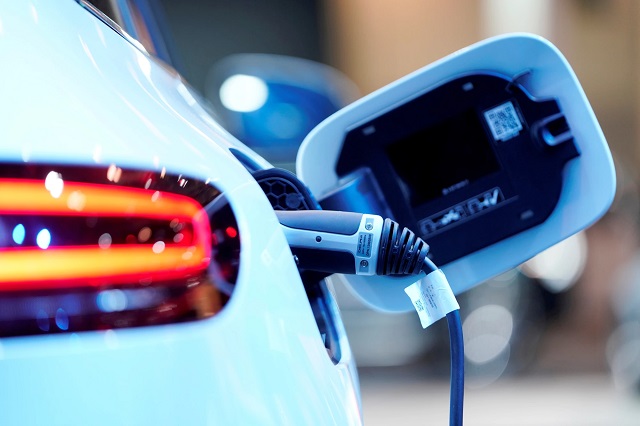
Frankfurt, Germany | Xinhua | BMW and Daimler, two of Germany’s auto giants, have been sued by activists on charges that they fall short on their commitments to a more ambitious goal of emission reduction.
The lawsuit was filed by German non-governmental organization Deutsche Umwelthilfe e. V. (DUH, Environmental Action Germany in English).
The DUH sent letters to the two companies on Sept. 2, asking them to strengthen their climate protection measures and phase out internal combustion engine cars by 2030. However, the demand was rejected and the DUH took the case to the courts in Munich and Stuttgart, where the two companies are respectively headquartered.
MOUNTING PRESSURE
The lawsuit is the latest of a slew of complaints lodged by activists against automakers in Germany, while the efforts made by corporations and the government to cut emissions are under more and more scrutiny.
The DUH’s Federal Managing Director Juergen Resch explicitly lambasted the automakers for their reluctance to make a binding promise to slash emissions. “For more than ten years, they formed a criminal cartel together with Volkswagen,” Resch said.
Resch accused the automakers of using poor exhaust gas cleaning technology that is harmful to the environment in order to enhance their profits.
German auto companies like Volkswagen were found to manipulate the software on their diesel vehicles to cheat and pass exhaust tests. The scandal, often referred to as “dieselgate,” marred the image of Germany’s auto industry as a whole.
The German federal government has endorsed initiatives aimed at reducing emissions to meet the goals set in the Paris Climate Agreement. However, critics demanded that more should be done, especially after the German Constitutional Court ruled in April that the Federal Climate Change Act was partly unconstitutional and insufficient.
Shortly after the ruling, the German federal Environment and Finance Ministries published plans to amend the Climate Change Act, lifting the target of emissions reduction to 65 percent compared to 1990 levels from 55 percent. According to the modified plans, Germany should become climate neutral by 2045, as opposed to 2050 in the old plan.
INEVITABLE TRANSITION
Germany’s auto industry, one of the most crucial sectors of the country’s manufacturing industry, has long enjoyed a comfortable dominance in international high-end markets. When it comes to conventional cars, the high quality of German vehicles is considered a source of national pride.
While there is still no consensus on whether electric vehicles are more efficient than internal combustion engine vehicles, the threats posed by climate change provide an impetus for decision makers across the world to adopt and promote electric vehicles.
One after another, a growing number of European countries have made clear commitments to phase out the sale of new combustion engine vehicles in the near future. Norway plans to stop the sale of new combustion engine vehicles as early as 2025, the Netherlands and Ireland in 2030, the United Kingdom in 2035, and France and Spain in 2040.
Germany has not joined its European counterparts, but the use of internal combustion engine vehicles has already been restricted in a growing list of cities.
Meanwhile, the rise of electric vehicle producers has already upended the auto market. Tesla, the U.S. electric vehicle producer founded in 2003, has witnessed precipitous growth for years.
With transportation veering towards electric mobility, the auto market’s transition to electrification looks inevitable.
JOBS AT RISK
German automakers are lagging behind their foreign counterparts in pushing forward with their electrification strategies. Their reluctance to speed up appears justified by the high stakes involved.
Electric cars have been one of the biggest hypes in the media and a magnet for investment in recent years.
While startups can scale from scratch to make inroads into the electric vehicle business, Germany’s established auto makers will probably have to spin off their conventional vehicle divisions if they choose to build new electric vehicle models.
According to the annual report of the German Association of the Automotive Industry (VDA), 833,000 people were employed in 2019 by the country’s car and vehicle parts manufacturers.
The transition to electrification is expected to put a huge number of auto-related jobs at risk as most of the skills required are non-transferable.
In a worst-case scenario, the National Platform Future of Mobility (NPM) predicted last year that more than 400,000 jobs could be lost by 2030 in the country’s auto industry.
Nonetheless, some German automakers have embarked on this transition. Volkswagen said it will stop selling new internal combustion engine vehicles in Europe by 2035. Audi also announced it plans to go all electric by 2026.
*****
Xinhua
 The Independent Uganda: You get the Truth we Pay the Price
The Independent Uganda: You get the Truth we Pay the Price



